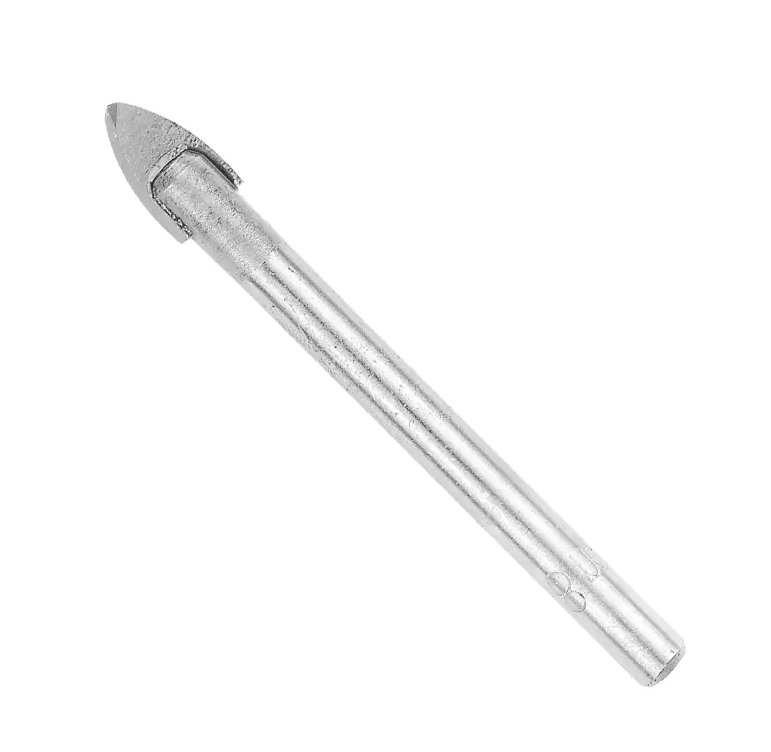-
Новости
- ИССЛЕДОВАТЬ
-
Страницы
-
Группы
-
Мероприятия
-
Статьи пользователей
-
Offers
-
Jobs
-
Courses
Rust and Dullness Resistance of Glass Drill Bit

Importance of Maintaining Sharpness and Rust Resistance
The performance of a Glass Drill Bit depends heavily on its ability to retain sharpness and resist corrosion after repeated use. Professionals and DIY enthusiasts often encounter concerns about whether these specialized bits become dull or develop rust, which can compromise efficiency, safety, and precision. Understanding the factors that influence wear and corrosion helps users extend the lifespan of their drill bits and maintain optimal performance.
Material Composition and Corrosion Resistance
Most high-quality Glass Drill Bits are manufactured from tungsten carbide or diamond-coated steel. Tungsten carbide provides extreme hardness, which prevents the bit from dulling quickly, while the diamond coating enhances cutting efficiency on hard, brittle surfaces like glass. Many bits are also treated with anti-corrosive coatings or stainless steel components, reducing the risk of rust formation even when exposed to moisture during drilling. This combination of materials ensures that the bit maintains its cutting ability and structural integrity over multiple uses.
Factors Leading to Dullness
Despite their durability, glass drill bits can become dull if used improperly. Applying excessive pressure, using incorrect drilling speeds, or working without adequate lubrication can accelerate wear on the cutting edge. Overheating during drilling, especially on thick or hard glass, can also reduce sharpness over time. The Glass Drill Bit is designed to withstand moderate stress, but maintaining proper technique is essential to preserve its efficiency and precision.
Factors Leading to Rust
Rust can form if the drill bit is stored improperly or exposed to water for extended periods. While most Glass Drill Bits are resistant to corrosion due to coatings and high-quality metals, neglecting to clean and dry the bit after use increases the risk of oxidation. Prolonged exposure to humid environments or acidic residues can further accelerate rust formation, reducing both performance and lifespan.
Maintenance Practices for Longevity
Proper maintenance is key to preventing dullness and rust. After each use, the Glass Drill Bit should be cleaned with a soft cloth to remove glass dust and moisture. Lightly oiling the bit can create a protective barrier against rust. Using the correct drill speed, applying water or coolant during drilling, and avoiding excessive pressure will help maintain sharpness. Storing the bits in a dry, protective case further ensures that they remain in optimal condition.
Comparison with Other Drill Bits
Unlike standard metal or masonry drill bits, glass-specific bits are designed to resist the unique stresses of drilling fragile materials. Standard bits may quickly dull or rust when used on glass, but a properly maintained Glass Drill Bit can provide long-lasting precision. This makes it a more reliable choice for professionals and hobbyists who require consistent, high-quality results.
Durable and Reliable Tool with Proper Care
A Glass Drill Bit can remain sharp and resistant to rust if properly maintained. Its specialized materials, coatings, and design make it suitable for repeated use on glass surfaces, provided users follow recommended techniques and storage practices. With careful handling, cleaning, and lubrication, glass drill bits offer a durable and reliable solution for precise, high-quality drilling over the long term.
- Art
- Causes
- Crafts
- Dance
- Drinks
- Film
- Fitness
- Food
- Игры
- Gardening
- Health
- Главная
- Literature
- Music
- Networking
- Другое
- Party
- Religion
- Shopping
- Sports
- Theater
- Wellness
